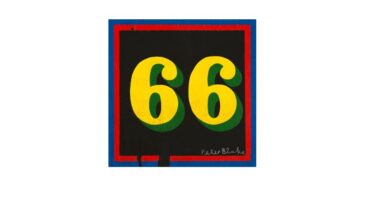At the end of this month we celebrate the 50th anniversary of ‘Bitches Brew’ by Miles Davis. So what, you may ask. But the answer is emphatic. So everything.
The record is one of many apogees of the jazz idiom, today existing as a taunt to those musicians (you know them well by the press shots) who think it might be enough to forge a career simply by pulling lugubrious facial expressions while looking mildly professorial.
Suffice to say, and to paraphrase the eminent, writing about jazz is like dancing about architecture, so I’ll desist. Long gone is Miles. Only the fruits of his genius remain. But do we now, half a century on, view his work as we would Everest, as an unscalable and daunting edifice?
But this isn’t a forensic examination of an album, nor is it a polemic that insists that ‘Bitches Brew‘ is a work of greatness (which it is). Rather, it’s a look at how things once were. Miles’ sound in 1970 is probably too alien for modern ears and with this milestone record Miles was then content to allow the inattentive listener to walk on by. It’s an all or nothing record. Commit to it or move on, was the attitude of its maker.
As a concoction of influences, the record makes easy mockery of today’s digital landscape that is more landfill than sunset. Miles related in his autobiography how his intention was to expand the musical canvas on ‘Bitches Brew‘ by increasing the length of the pieces and the number of musicians. He also mixed improvisational methods with soul, rock, folk and African polyrhythms. By accumulating talent in order to focus it under his direction, the idea had been that the scope of the recording would widen and thereby increase the chance of the band stating something indelible. With talent, time and expressiveness, ‘Bitches Brew‘, under the watchful eye of Teo Macero, rose tidelike onto tape.
The musicians accompanying Miles numbered the masters John McLaughlin, Billy Cobham, Airto Moreira, Wayne Shorter, Bennie Maupin, Joe Zawinul, Larry Young, Chick Corea, Jack DeJohnette, Don Alias, Lenny White, Dave Holland, Harvey Brooks and Juma Santos. McLaughlin once said to me of Miles when I asked how better to understand a musician like him: “I don’t bother, because to rationalise his music is to reduce what he created to an intellectual concept. A man like Miles was a great artist. I put him up there with Picasso and Mozart. What Miles and Coltrane were doing was completely irrational in a way, but that’s art.“
By listening to this album again you’ll be made aware of just how far American culture has sunk in the fifty years since its making. The country’s cultural unravelling seems almost complete in 2020. It’s a place so divided that all the cultural masterworks of the past, so monumental and enriching in their originality, are today eyed by a disinherited populace whose disinterest in them is matched only by its inability to understand.
Aspects of the album’s genre experimentation are echoed in Mati Klarwein’s cover art; it’s an unnerving mural that depicts a series of heads turned obliquely towards the horizon, Klarwein quick to visually assert that the bridge between the cultural upheaval of the 1960s and the approaching, unseen economic woes of the 1970s might be narrow and structurally unsound.
Fifty years on and it’s not so much a bitch’s brew we’re today supping but rather bilge from a poisoned chalice. We’re living through a Maoist nightmare that Miles perhaps foresaw. The dystopian free-at-the-point-of-reception Internet has seen hardworking musicians robbed of income. It’s a demoralising world in which we now live, a scrambled existence for all as we attempt to dig ourselves out of the digital avalanche. The revolution has become a catastrophe, and perhaps in Miles’ disquieting modality as the record spins to its conclusion, we can hear a prophetic warning. With American jazz musicians today ploughing a lone furrow, depoliticised as a group having been riven by the overarching box-ticking demands of the marketplace (see Wynton Marsalis, Gregory Porter and Robert Glasper), the 50th anniversary of ‘Bitches Brew’ comes as a stark reminder of past achievements.
Reacting to his critics at the time (like Will Smith in ‘Down Beat‘ magazine who cited the “supposedly hypnotic but ultimately static rhythm“) of his new sound, Miles said (to Frederick D Murphy in ‘Encore‘ magazine): “I don’t play rock. Rock is a white word… we just play Black. We play what the day recommends.”
As a musical summit arriving at the end of a decade that had burned with the white heat of the civil rights movement, ‘Bitches Brew‘ can be viewed as the work of a mystic, a mystic whose insight into music’s possibilities has yet to be fully understood. And it’s worth noting that jazz was popular music. Miles and his peers shifted units in huge numbers to the delight of record company bosses who were aware that the music-listening public back then was in possession of educated ears. But who knew back then that most people would one day be content to stroll through streets with wireless earphones feeding a tinny aural soup into a space inside their heads once occupied by an intellect.

His music ended up reflecting discordant times. A study of Miles’ palette reveals a shooting star musician marooned in a western society intent on self-diminishment; it’s a place that has lost touch with its own humanity. But Miles sprang from an American moment of heightened self-awareness. Clear sighted and serious, he was able to express himself with depth and in so doing acquired a freedom of expression.
“While controversy, never a stranger, swirled around him Davis, long a living legend, had already left indelible marks as an influence; an incubator for leaders,” wrote Leonard Feather and Ira Gitler in ‘The Encyclopedia of Jazz in the ’70s‘.
As one of the cultural leaders who lived through the civil rights era, the gravitas of his deeds turned to ash the acreage of journalistic copy that strived in vain to put into words what Miles created out of instinct. Musicians back then were politicised in a way inconceivable to today’s stage dwellers whose eyes are open but whose ears are resolutely closed.
That jazz is no longer a flavour strong enough to make music audiences salivate has much to do with the general debasement of artistic tastes, our musical anosmia owing largely to the benumbing effect of the Internet which has revealed itself to be a monstrous market where everything is free, largely because nothing is actually wanted.
So was Miles the final word in jazz? As all lovers of jazz know, there is no final word in jazz. So we wait with infinite patience for the next genius to light the way, with logic dictating that next time he won’t be an American.
If all that mattered to Miles was his art, the music, then his lifelong adventure in it served us all well. We still have the recordings to remind us of what was and what might yet still be musically achievable.
But the suzerainty of today’s music industry would see the masters of the past patted on the head and their work consigned to the bargain basement. Yes, the bosses of the majors can cut off their noses to spite their faces all they like, but they’d do well to remember that treasure buried is always treasure refound.
Jason Holmes | @JasonAHolmes





